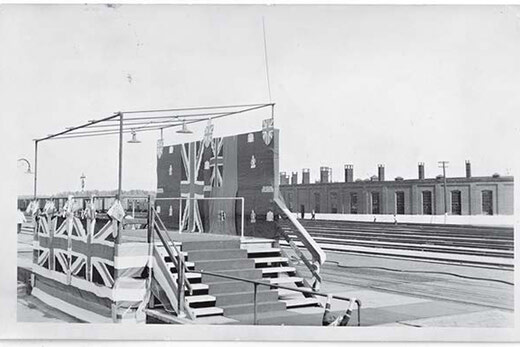Neskantaga First Nation demanding immediate emergency response and political accountability amid health crisis
Tim Brody - Editor
Neskantaga First Nation is demanding an immediate emergency response and political accountability amid a health crisis in the community.
A State of Emergency was declared on April 13 by community leadership after the community’s nursing station was closed due to severe flooding and toxic fuel fumes.
An April 20 media release issued by Neskantaga First Nation states that, “Despite the evacuation of over 100 community members, 26 children remain in the community with only two nurses working from a temporary makeshift clinic. Medical staff and leadership have warned that a serious health event cannot be safely managed under current conditions.”
“For decades, Neskantaga has been forced to survive without the basic rights that other communities take for granted—clean water, access to health care, safe infrastructure,” said Chief Gary Quisess. “Our current state of emergency is not just a public health emergency—it is the direct result of systemic neglect.”
Chief Quisses is calling for immediate action, citing both Canada’s legal responsibilities and its public commitment to Truth and Reconciliation:
• Mobilize emergency health services to the community, including a fully equipped mobile medical unit;
• Accelerate deployment of Red Cross and Canadian Rangers to provide on-the-ground relief and logistical support;
• Federal political leaders to travel to Neskantaga to witness firsthand the conditions being endured;
• Deliver a written emergency plan outlining what services are available now, when the temporary health clinic will be operational, and timelines for full restoration of the nursing station.
The First Nation shared that restoration work at the nursing station is expected to begin early next week and will take approximately 10–14 days, an engineering and fire safety assessment will be conducted on April 23; and a new duplex has been identified for conversion into a temporary clinic, with renovations to be completed by a local contractor, the fourth flight of evacuees departed Friday evening, after weather delays stalled transportation throughout the day. The fifth flight of evacuees is being planned today (April 20).
“We are still operating in survival mode,” said Chief Quisess. “Our children are still at risk. Our health care workers are exhausted. We need more than promises—we need boots on the ground, now.”
Neskantaga First Nation has been under a boil water advisory for over 11,000 days—the longest in Canadian history. The First Nation shared, “The community has faced multiple evacuations and decades of underinvestment in critical infrastructure. Despite repeated assurances from government leaders, Neskantaga continues to be left behind.”
“Reconciliation is not just a word. It’s a commitment. And that commitment must come with action,” said Chief Quisess. “If this crisis were happening in any other community, the response would have been immediate. Our people deserve the same urgency and the same dignity.”



